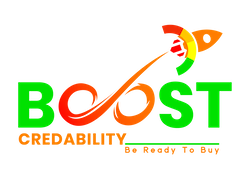The Fair Debt Collection Practices Act (FDCPA)
The Fair Debt Collection Practices Act (FDCPA) is the main federal law that governs debt collection practices. The FDCPA prohibits debt collection companies from using abusive, unfair or deceptive practices to collect debts from you.
The FDCPA covers the collection of:
- Mortgages
- Credit cards
- Medical debts
- Other debts mainly for personal, family, or household purposes.
The FDCPA does not cover business debts. It also does not generally cover collection by the original creditor to whom you first became indebted.
Under the FDCPA, debt collectors include collection agencies, debt buyers, and lawyers who regularly collect debts as part of their business. There are also companies that buy past-due debts from creditors or other businesses and then try to collect them. These debt collectors are also usually called debt collection agencies, debt collection companies, or debt buyers.
Restrictions on communications by debt collectors when collecting a debt
- Time and place. Generally, debt collectors may not contact you at an unusual time or place, or at a time or place they know is inconvenient to you, and they are prohibited from contacting you before 8 a.m. or after 9 p.m. Also if a debt collector knows that you're not allowed to receive the debt collector’s communications at work, then the debt collector is not allowed to contact you there.
- Harassment. Debt collectors may not harass you or anyone else, over the phone or through any other form of contact.
- Representation by attorney. If a debt collector knows that an attorney is representing you about the debt, the debt collector generally must stop contacting you, and must contact the attorney instead. This is only true if the debt collector knows, or can easily find out, the name and contact information of your attorney. If an attorney is representing you and a debt collector calls, tell them which attorney is representing you and that the debt collector should contact the attorney, not you.
Tip: The CFPB has prepared sample letters that you can use to respond to a debt collector who is trying to collect a debt. Our letters include tips on how to use them. The sample letters may help you to get information, set limits or stop any further communication, or protect some of your rights. Always keep a copy of your letter for your records.
If you tell a debt collector in writing to stop contacting you, the debt collector can't contact you again except to:
- Say there will be no further contact
- Notify you that the debt collector or the creditor may take certain specific action it is legally allowed to take, such as a lawsuit against you
Warning: Telling a debt collector to stop contacting you does not prevent the debt collector from pursuing other legal ways to collect the debt from you if you owe it, including a lawsuit against you or reporting negative information to a credit reporting company.
Any debt collector who contacts you claiming you owe payment on a debt is required by law to tell you certain information about the debt. That information includes:
- The name of the creditor
- The amount owed
- That you can dispute the debt
- That you can request the name and address of the original creditor, if different from the current creditor
If the debt collector doesn’t provide this information when they first contact you, they are required to send you a written notice including that information within five days of the initial contact.
You can dispute all or part of the debt. You can also ask for more information if you are unsure you owe money to a creditor, or how much you might owe.
If you dispute all or part of a debt in writing within 30 days of when you receive the required information from the debt collector, the debt collector cannot call or contact you to collect the debt or the disputed part until the debt collector has provided the verification of the debt in writing to you.
You can also request that the creditor give you the name and address of the original creditor. If you make that request in writing within 30 days, the debt collector has to stop all debt collection activities until the debt collector provides you that information. If you don’t recognize the name of the creditor, ask if it might have purchased the debt from another company and, if so, what the name of that company is.
When you get the requested information or the response to your dispute from the debt collector, see if your own records agree with the information the debt collector provided.
The Fair Credit Reporting Act
There are other important federal laws as well. The federal Fair Credit Reporting Act covers how financial matter, including debt collections can be reported in your credit report. There are also federal consumer financial protection laws that prohibit unfair, deceptive, or abusive acts or practices that apply to debt collectors, as well as creditors.
Tip: Put it in writing. A good practice is to confirm your requests with the debt collector by mailing a written letter. Keep a copy of your letter, showing the date you wrote it, so that you have a record of your request.
State laws
Most states have laws about debt collection practices, many of which are similar to the FDCPA. Some of those state laws cover the original creditor, while others don't. States also have Unfair and Deceptive Acts and Practices laws that may apply to debt collection. Contact your state attorney general's office to learn more about the laws in your state.
